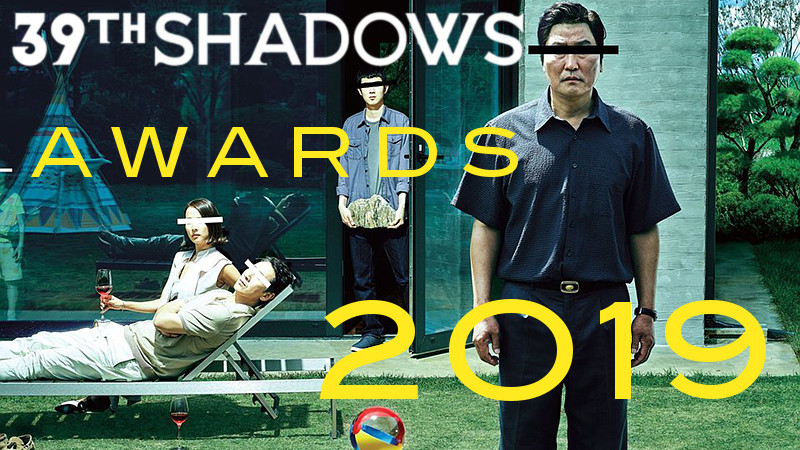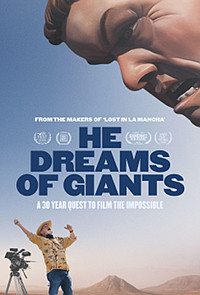| SHADOWS ON THE WALL | REVIEWS | NEWS | FESTIVAL | AWARDS | Q&A | ABOUT | TALKBACK | |||||
|
The Man Who Killed Don Quixote
Review by Rich Cline |
| |||||
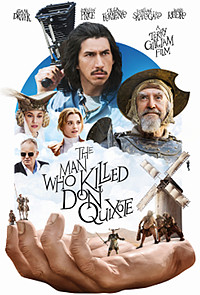 dir Terry Gilliam scr Terry Gilliam, Tony Grisoni prd Mariela Besuievsky, Amy Gilliam, Gerardo Herrero, Gregoire Melin with Adam Driver, Jonathan Pryce, Stellan Skarsgard, Olga Kurylenko, Joana Ribeiro, Oscar Jaenada, Jordi Molla, Jason Watkins, Rossy de Palma, Sergi Lopez, Hovik Keuchkerian, Jorge Calvo release Sp 1.Jun.18, UK Oct.18 lff, US 10.Apr.19 18/Spain 2h13 


CANNES FILM FEST  |
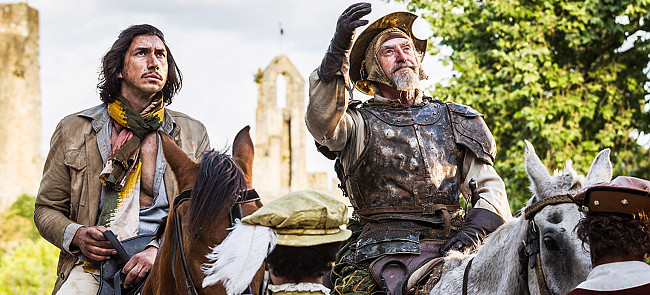 Terry Gilliam spent more than 25 years working on this project (a previous attempt to film it was documented in Lost in La Mancha), and getting the film released wasn't easy either. The plot is wacky and meandering, but Gilliam infuses it with a gleefully freewheeling tone, taking flights of fancy at every turn. So even if its defiantly original style can be challenging, it's both raucous good fun and sharply pointed. While directing a Don Quixote-themed advert in Spain, Toby (Driver) is caught having a fling with Jacqui (Kurylenko), wife of the boss (Skarsgard). At the same time, Toby has discovered a bootleg copy of his student film, reminding him of when he hired the cobbler Javier (Pryce) to play Quixote and fell for his Dulcinea, the waitress Angelica (Ribeiro). Then when a series of mishaps sends him on the run, he ends up playing Sancho to the now-mad Javier's Quixote. And their odyssey spins in outrageous directions, often feeling like a dream. Gilliam's trademark dexterity with camera movements, lavish sets and whizzy effects blur lines between reality, filmmaking and backstage trickery. Each scene has an unhinged energy that's often surprising, spinning wildly into absurdity. This includes plenty of surreal comedy, Pythonesque wackiness and outrageous verbal and visual gags. Along with a political edge, Gilliam is playing with the nature of storytelling. Although the wavering tone and extended, unravelled narrative may test the patience of viewers who like things formulaic and obvious. Performances are also loose and engaging, catching surprising depth as Cervantes' deeper themes weave through the story. Driver has an offbeat, frazzled charm, with Pryce adding emotional resonance as an earnest man who makes knowing observations even in his most delusional ravings. The connection between them is awkward and unusual; they never bond in expected ways, questioning the nature of madness at every step. Meanwhile, Ribeiro's role grows into something startlingly involving. The film's noisy tone is sometimes distracting, as it sends its characters tilting at various kinds of windmills, including a knowing jab at current fears about immigrants and Muslims. The years of development show in the script's continuously inventive observations, beautifully rendered by Gilliam's singular visual sensibilities. But it also feels unfocussed, seemingly wandering without a destination. Which is of course the entire point. Only Gilliam could have made this film, and it's a joy that he finally did.
R E A D E R R E V I E W S 
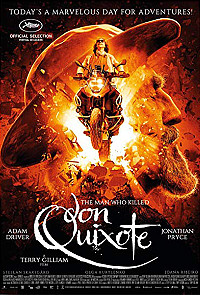 Still waiting for your comments ... don't be shy.
Still waiting for your comments ... don't be shy.
|
||||
© 2019 by Rich Cline, Shadows on the Wall | |||||
| HOME | REVIEWS | NEWS | FESTIVAL | AWARDS | Q&A | ABOUT | TALKBACK | |||||

